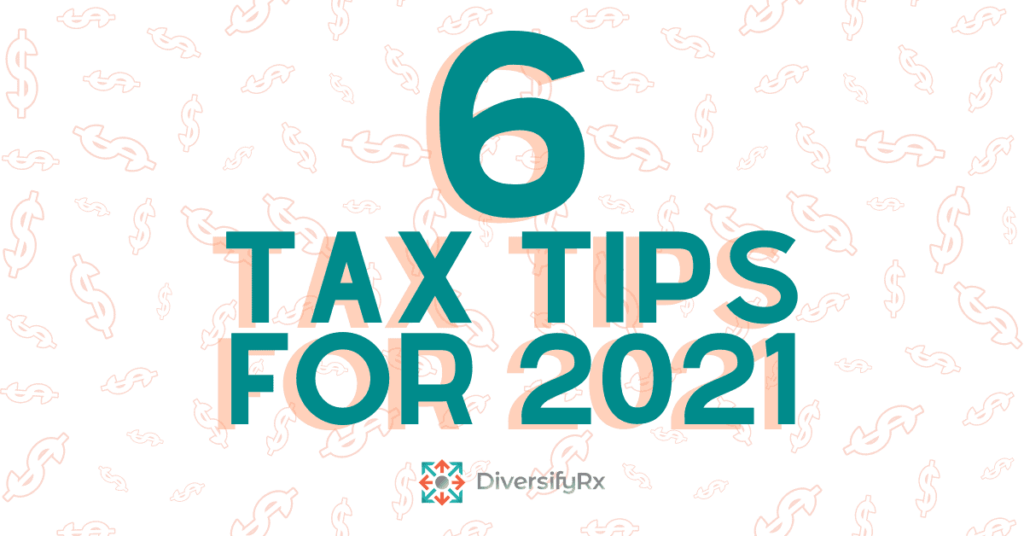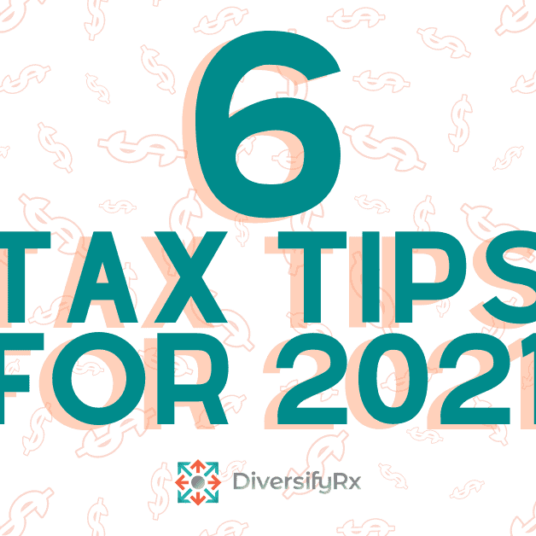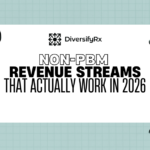Death and taxes. The only 2 things that are certain in life and pharmacy ownership, so you need these tax tips.
These six tax tips will help you jump-start tax preparation for 2021. For some often-overlooked tax credits, read this blog.
Tax Tip #1 Maintain good business records
If you have a year-round bookkeeper, this step should be simple. Starting in January and continuing into February, you will receive lots of tax-related mail. You should start a new file folder at the beginning of the year to toss tax-related documents into. I prefer to open the envelopes and only file away the single paper needed from that mailing. When it comes time to send to my accountant (which always seems to be at the last minute), the process is much easier with less paperwork.
Here are some important items to make sure you have:
- Annual reports from your payroll company
- 1099s
- Purchase records for any equipment
- Dealership paperwork for any car/truck
- Final prior year financial statements
- Year-end physical inventory
Tax Tip #2 Keep business and personal expenses separate
One key to keeping good records is to avoid mixing business and personal purchases. This can be tough when your professional life and personal life barriers are blurred. My best advice is to have a business credit card that is dedicated to business-related expenses only. You can have several even. Now, your business can pay for many types of expenses that may seem to be a personal expense. For example, your cell phone. To know whether an expense qualifies as a business-related expense, talk to your tax professional. These extra deductions are an advantage of being a pharmacy owner. Make sure you always ask about the best tax tips for both your business and personal taxes. They may need to be separate, but you have to file both.
Tax Tip #3 Consider COVID Related Changes
I suggest you evaluate these COVID related items as you prepare your 2020 income tax returns:
- The tax implications of Paycheck Protection Program (PPP) Loan Forgiveness (federal and state can be different)
- Payroll taxes affected by Families First Coronavirus Response Act
- Stimulus payments from the CARES Act
- Unemployment payments
- EIDL or other grant programs
Tax Tip #4 No Deduction Left Behind!
When you use dedicated bank and credit card accounts, it is enormously easier to be certain you are not missing any expenses. However, how an expense is deducted can vary based on the types of expense it is. Some items will qualify for accelerated depreciation or may be deductible based on your chosen entity type. There are even differences in deductibility with the new tax code depending on your revenue totals and revenue types. My recommendation is never to incur an expense just to be able to deduct it. If you were going to spend the money anyway, then it is smart to employ a tax savings strategy to the expenditure.
Here are some strategic expenditures you may want to consider:
- Rewarding employees with bonuses.
- Buying new equipment. Section 179 of the U.S. tax code allows a business to deduct up to $1,040,000 for equipment. Essentially, you can accelerate the depreciation to take 100% in year 1.
- Claiming your home office. You may be able to deduct a portion of your rent or mortgage, property taxes, insurance, and utilities if it’s a space dedicated to your business – though you cannot deduct your kitchen table or your living room couch no matter how many Zoom calls you had there!
Tax Tip #5 Remember Important Dates
Tax Day is April 15 for most households and businesses, including sole proprietorships, LLCs, and corporations with a fiscal year ending December 31. For partnerships or multi-member LLCs, March 15 is typically the tax deadline. However, in 2020, COVID delayed these dates by several months. So far, there doesn’t seem to be any indication that the IRS will adjust filing dates for 2021. When in doubt, always file an extension. My accountant knows me too well and automatically files extensions for me every year. We have so many business entities and paperwork to collect that we can’t seem to get it to 100% early enough to meet the deadline.
In addition, as you approach the end of your fiscal year, work with your tax advisor to implement their tax tips while you can. Once the year is over, you may not be able to make the strategic moves that could have saved you thousands.
Tax Tip #6 Taxes Aren’t Just For April
You can avoid expensive mistakes by planning and tracking your income and expenses throughout the year. Minimally, you should meet with your tax advisor quarterly. This way, you can update her on your income trend and discuss together the best decisions to meet your overall tax strategy. A great tax advisor will educate you on your options and help you maximize your income. Be sure to tell her about every big purchase! I almost missed out on a big deduction as I didn’t think about sharing the news of purchasing a new vehicle. Staying in touch through the year makes these discoveries more likely to happen.
When planning, make sure you also evaluate what changing your business structure might mean for your taxes. For example, the new tax rules allow for benefits that pharmacies can enjoy (deducting your inventory!), but only if you have the right entity. Your tax advisor should guide you in these types of business decisions and inform you of the most impactful tax tips based on your individual circumstances.
The Pharmacy Owner Tax Experts
2020 was a year like no other, so of course, your taxes for this unforgettable year will be like no other. If you need help navigating the unique intricacies of pharmacy owners’ taxes, DiversifyRx highly recommends pharmacy accounting specialists at Rx Advisors. They do it all from bookkeeping, financial statements, business advising, and taxes!
Don’t forget to join our free Facebook group and follow us on LinkedIn.
















